On October 21, 2021, the International Conference on Safeguarding Economic Rights and the Right to Health was successfully held. This prestigious event was hosted by the Jilin University Human Rights Center, Jilin University School of Law, and the Human Rights Center of Northwest University of Political Science and Law, and co-organized by the Chahar Institute.

More than twenty Chinese and foreign experts and scholars from various academic institutions participated in this event, including but not limited to, Zhou Chunguo, Secretary of the CPC Committee of Jilin University School of Law; He Zhipeng, Executive Director of the Jilin University Human Rights Center and Dean of the Jilin University School of Law; Liu Xiaolin, Vice Dean of the Jilin University School of Law and Researcher of the Jilin University Human Rights Center; Liu Xuebin, Researcher of the Jilin University Human Rights Center, and scholars and experts from Northwest University of Political Science and Law, Chahar Institute, Kunming University of Science and Technology, Liaoning University, Southwest University of Political Science and Law, University of Pennsylvania, Keio University, Yonsei University, the Embassy of the Republic of Korea in China, the East Asian Peace Research Institute of the Republic of Korea and other institutions.
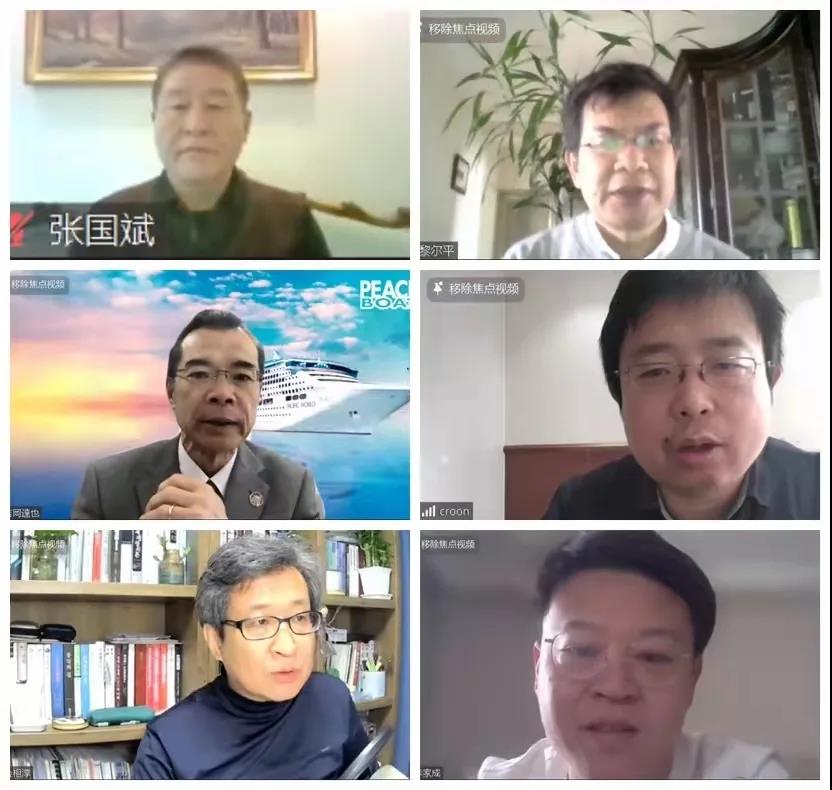
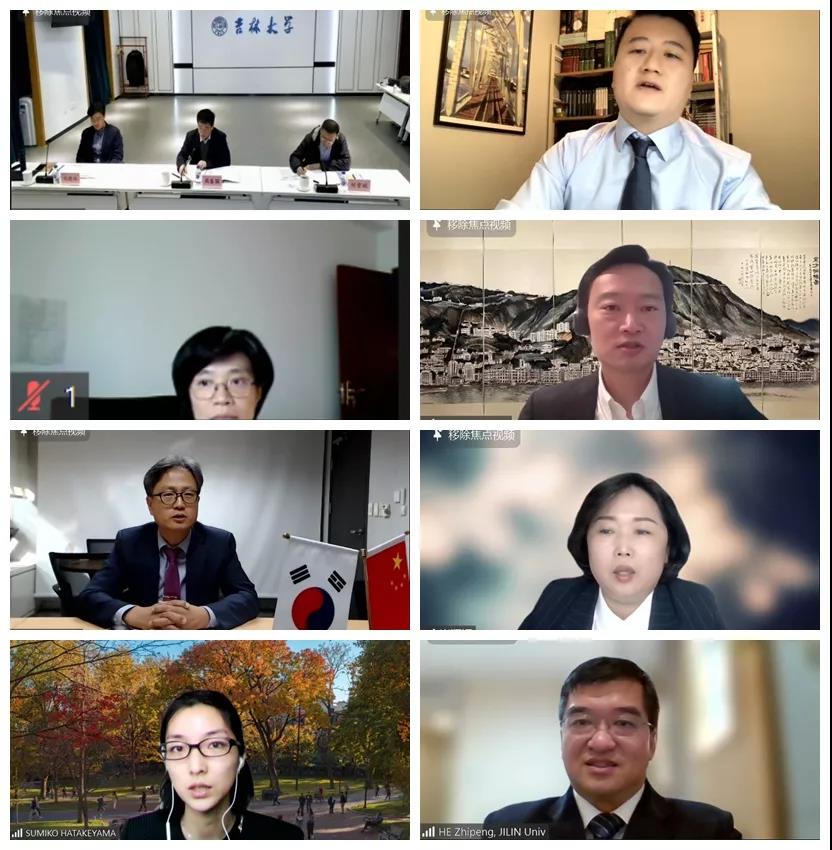
The opening ceremony was hosted by Liu Xiaolin, Vice Dean of the Jilin University School of Law. He extended a warm welcome to colleagues from both home and abroad to this prestigious event. Han Fangming, Deputy Director of the Foreign Affairs Committee of the Chinese People’s Political Consultative Conference and Chairman of the Chahar Institute (represented by Zhang Guobin, Vice Chairman of the Chahar Institute), and Kim Jinpyo, member of the Republic of Korea's National Assembly and former Vice Prime Minister (represented by Zhou Chunguo, Secretary of the CPC Committee of Jilin University School of Law) delivered keynote speeches at the opening ceremony.
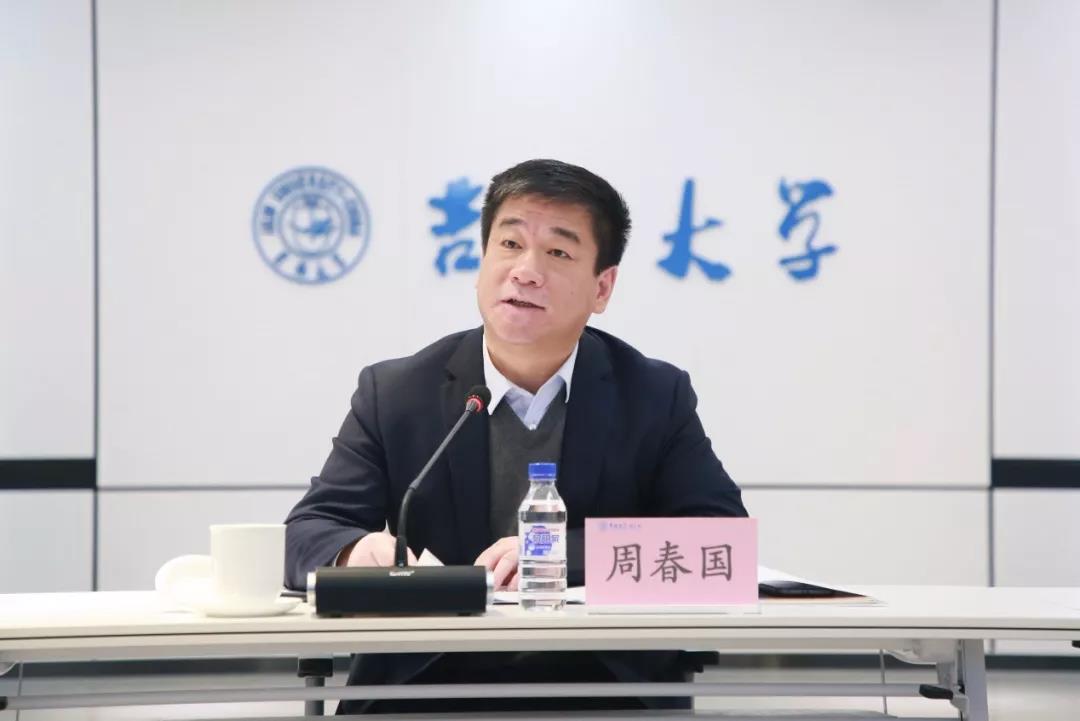
Han Fangming pointed out that the main theme in the current era is peace and development. Only by achieving peace and development can the fundamental protection of economic rights and health rights be realized. China plays a very important role in world development and is of great significance in maintaining worldwide peace and stability, particularly in promoting friendship and cooperation among relevant parties in Northeast Asia. The situation in Northeast Asia has always been moving forward despite setbacks. We have achieved remarkable achievements in jointly fighting the pandemic and restoring economic development. Official and non-governmental exchanges between nations in Northeast Asia continue to prosper, and the Chahar Institute has made great contributions to this development.
Kim Jinpyo believes that the gathering of representatives of different nations to share their insights on the development of health rights and economic rights against the backdrop of global pandemic will enable experts and scholars to understand and learn from each other, and find solutions for better cooperation in this field. He also introduced the three core elements of the "K Epidemic Prevention" policy developed by the Republic of Korea government, namely "Test (Expanded Detection Capability)," "Trace (Investigation of the Movement Route of the Infected Person)," "Treat (Rapid Isolation and Treatment)", and introduced the relevant measures taken to protect people’s economic rights and health rights. He expressed his hope and anticipation in achieving common economic prosperity and development in the light of the successful pandemic fight cooperation among China, the Republic of Korea, and Japan.
After the opening ceremony, the conference came to the speech session. The first section was hosted by Liu Xuebin, Researcher of the Jilin University Human Rights Center.

Li Erping, Researcher of the Chahar Institute and professor of the School of Management and Economics of Kunming University of Science and Technology, made a speech on the theme of "Historical Review and Prospects of Public Health Expenditure and Realization of the Right to Health Since the Founding of the People's Republic of China". He reviewed the history of the establishment and development of the medical and health system in the People's Republic of China, and pointed out that in the 1960s, the focus on medical and health system development in the rural areas was a major achievement that still has immensely high value today. In this regard, the "Healthy China 2030 Plan" issued in 2016 has elevated the implementation of "Healthy China" to a national strategic position, and China has successfully entered into a new stage where all people could enjoy the right to health.
The founder of "Peace Boat", Yoshioka Tatsuya gave a speech on the theme of "Humanitarian International Cooperation for the Prevention and Control of Infectious Diseases – The Construction and International Sharing of Large Hospital Ships", analyzing the seven functions that large medical ships could possibly play: loading ICU and artificial heart-lung machines to deal with severe illness; providing more quarantine space; isolating mild and asymptomatic people while treating them; functioning as a hotel and isolating travelling patients; providing simple isolation for port staff and crew on returning ships; functioning as a disaster emergency rescue vessel to help the victims evacuate during flood and other natural disasters; strengthening the capacity of mobile response to the pandemic, and promoting the shipbuilding industry and in turn the economic development. He proposed that China, Japan and the Republic of Korea could jointly engage in such ship-building projects and form stronger ties of friendship.
Kim Sangsoon, Researcher of the Peninsula Peace Research Center of the Chahar Institute and Dean of the East Asian Peace Research Institute of the Republic of Korea, made a speech on the theme of "Towards a Time of Coexistence with the Pandemic, Thinking about Interpersonal and International Relations". He believed that during the pandemic, interpersonal and international relations have been exhibiting the characteristics of severance, indifference, isolation, and low communication efficiency. The state-to-state communications are decreasing, the interpersonal feeling of distance is increasing, and the barriers leading to exclusivity are heightening. Developed countries are intensively fighting for vaccines, while some developing countries that have not been able to obtain adequate vaccines are gradually falling into despair. In this regard, he proposed that scholars and experts should act together to seek for effective solutions.
Li Jiacheng, Researcher of the Chahar Institute and associate professor of the School of International Relations of Liaoning University, gave a speech on the theme of "Clearing or Coexistence: Comparison of the Impacts of Different Pandemic Prevention Strategies on Economic Rights and Health Rights". The key reason of adopting the clearing policy is that the virus strains’ super-transmissibility and lethality are far stronger than expected. Although vaccines have made a significant contribution in preventing the transmission of the disease, they still cannot stop the spread of the epidemic 100%. Under such circumstances, the right to health should prevail over the economic right. Vaccination rates cannot be used as the one and only condition for coexistence with the virus.
Chang An, Executive Director of the Human Rights Center of Northwest University of Political Science and Law, spoke on "Achievements and Features of the Protection of the Right to Health of Ethnic Minorities in China". He stated that the right to health is a basic right of human beings. He reviewed the specific measures and achievements made in the protection of the right to health of ethnic minorities from the early days of the People's Republic of China to the present. Protecting the health rights of ethnic minorities is the foundation of ethnic minorities’ rights protection. China's protection of the right to health has several characteristics, including proactive protection, promotion of human rights through development, and emphasis on the effectiveness of rights protection. Such protection of ethnic minorities not only provides an excellent example for the international community, but also helps international cooperation and builds a community with a shared future for mankind.
Subsequently, the conference entered into the second session, which was hosted by Liu Xiaolin, Vice Dean of the Jilin University School of Law and Researcher of the Jilin University Human Rights Center.
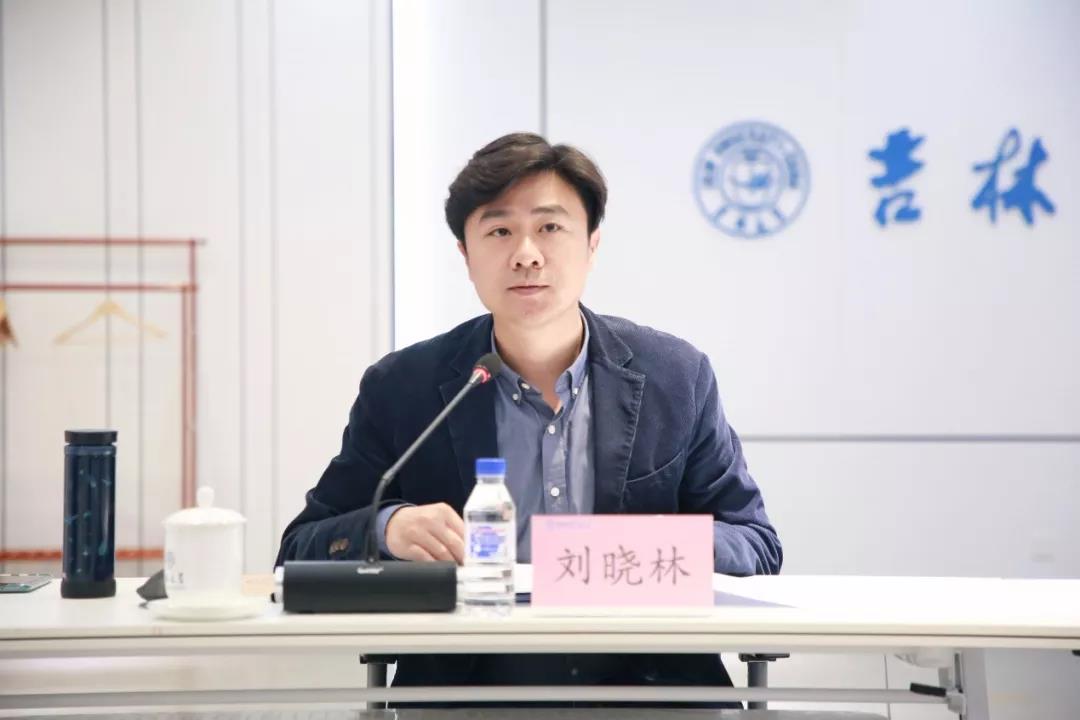
Song Gyeonghao, the Chief Researcher of the Unification Research Institute of Yonsei University, made a speech on the theme of "Changes in the Republic of Korea 's Understanding of Economic Rights and Health Rights due to COVID-19". He pointed out that after the COVID outbreak, the Republic of Korea's society has been debating whether to give priority to economy or epidemic prevention. In the early days of the pandemic, the Republic of Korea did put health rights above economic rights, and the results of public opinion surveys have also strengthened the rationality of this choice. However, there are now signs that public opinion is changing. Under such circumstances, more efforts in exploring new ways to form democratic decision-making are indispensable.
Cao Yan, Researcher from the Human Rights Center of Northwest University of Political Science and Law, made a speech on the topic of "Legal Protection of the Health Rights of Elderly Workers". He believes that the profound impact of increasing groups of aging people should be paid attention to, and the working hours of older workers should be strictly restricted to establish age-friendly working conditions. It should be guaranteed that elderly workers enjoy all labor rights. The social relationship between the government, employers and informal employees should be strengthened, so as to jointly promote the improvement of the working conditions of informal employees, and to realize the effective conversion between informal labor and formal labor income. In general, efforts must be made to ensure the safety and health of elderly workers and their ability to be continually employed.
Yoshikazu Kato, Researcher of the Chahar Institute and director of the Trans-Pacific Group, made a speech on "Japanese Experience: How to Reconcile National Economic Rights and Health Rights?" He pointed out that the continuous rebound of the epidemic has caused huge losses not only to people’s health rights, but also to economic rights. He introduced the characteristics of Japanese society and citizens, and analyzed their connection to the epidemic prevention and control measures adopted in Japan. As remarked, the global pandemic has had a major impact on all aspects of people’s lives, including economic rights and health rights. Without proper protection of health rights, there would not be proper exertion of economic rights; yet without safeguarding economic rights, it is difficult to properly protect health rights. Both rights are indispensable.
Lee DoKi, Food & Drug Safety counsellor of the Embassy of the Republic of Korea in China, made a speech on "the Republic of Korea-Chinese Medicine Cooperation and Health Right Maintenance". He pointed out that the right to health is the most basic and primitive right of everyone. China first adopted the most stringent and thorough epidemic prevention and control measures, caring for not only the life safety and health of the Chinese people, but also the public health undertakings in Northeast Asia and the entire world. China and the Republic of Korea have had a lot of fruitful cooperation activities in the field of mutual assistance in the fight against the epidemic. It is envisaged that mutual trust between the two countries will be further enhanced, mutually beneficial cooperation will go on, the legal mechanisms will be further improved, and mutual understanding between the people will be further enhanced.
Choi SoonHee, Executive Director of the East Asia Peace Research Institute, made a speech on "Balancing of Epidemic Prevention Rights and Economic Rights". She argued that the balance between health rights and economic rights refers to restraining the spread of the epidemic to a controllable level, while at the same time recovering economic losses, in order to restore to the level of economic growth to the pre-epidemic situation. After analyzing the stringency of epidemic prevention and control measures in various countries, she pointed out that coordinating epidemic prevention and improving people's livelihood are important for the government. She also shared experiences of the Republic of Korea's government in increasing government expenditures so as to increase household income, promote private consumption, and promote economic growth in the past two years.
Hatakeyama Sumiko from the University of Pennsylvania made a speech on "Health and Peace in East Asia: From the Perspective of Civil Society, No One Is Left Behind in the Realization of a Society". It is pointed out that the key elements of health and peace shape and influence each other. The epidemic has massive influences on the soundness of the medical system and particularly on vulnerable groups of people. The vaccination rate in developed countries is relatively high, but obtaining vaccination remains difficult in developing countries. Mutual trust should be established at all levels and mutual support should be provided for people who are lack of medical and health care. The states should pay more attention to minority groups, listen to the voices of individuals, and ensure the health and peace of the international community.
After the speech session, the conference entered into the free discussion session, with Liu Xiaolin, Vice Dean of the Jilin University School of Law acting as the host. The experts discussed in detail whether it is possible to form a three-country anti-epidemic and exchange mechanism in Northeast Asia. It is believed that such thoughts can be approached and realized from multiple angles, including official cooperation, cooperation between non-governmental organizations and the government, and completely private cooperation. Some experts and scholars also discussed special protection arrangements for large medical ships in the prevention and control of the epidemic, and believed that epidemic prevention measures need to be scientific, professional, and appropriate.
After the free discussion session, He Zhipeng, Executive Director of the Jilin University Human Rights Center and Dean of the Jilin University School of Law, gave the closing remarks.
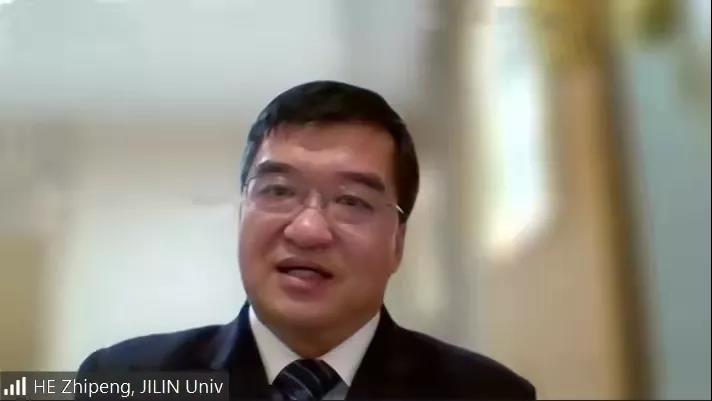
He once again expressed his gratitude to the conference organizers and co-organizers, guests, staff, and volunteers who contributed to this conference. This conference was held in a timely manner, themes were fully discussed, and proposed agendas were successfully carried out. After professional, constructive and enlightening speeches and discussions, experts were able to reach consensus on issues of scientific significance. He looked forward to the development of further collaboration on basis of this prestigious event. Through different levels of communication, the establishment of a normalized coordination and cooperation mechanism not only could help alleviate the current epidemic, but also would be meaningful in terms of improving the overall social governance and legal system, and building a more stable, coordinated and sustainable society in the future.